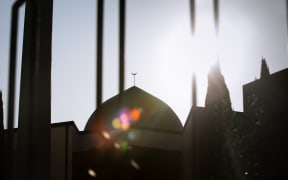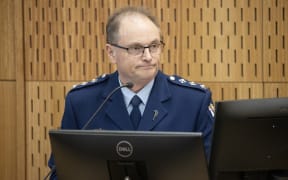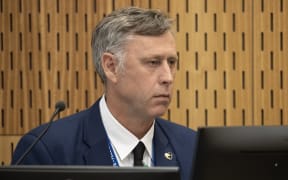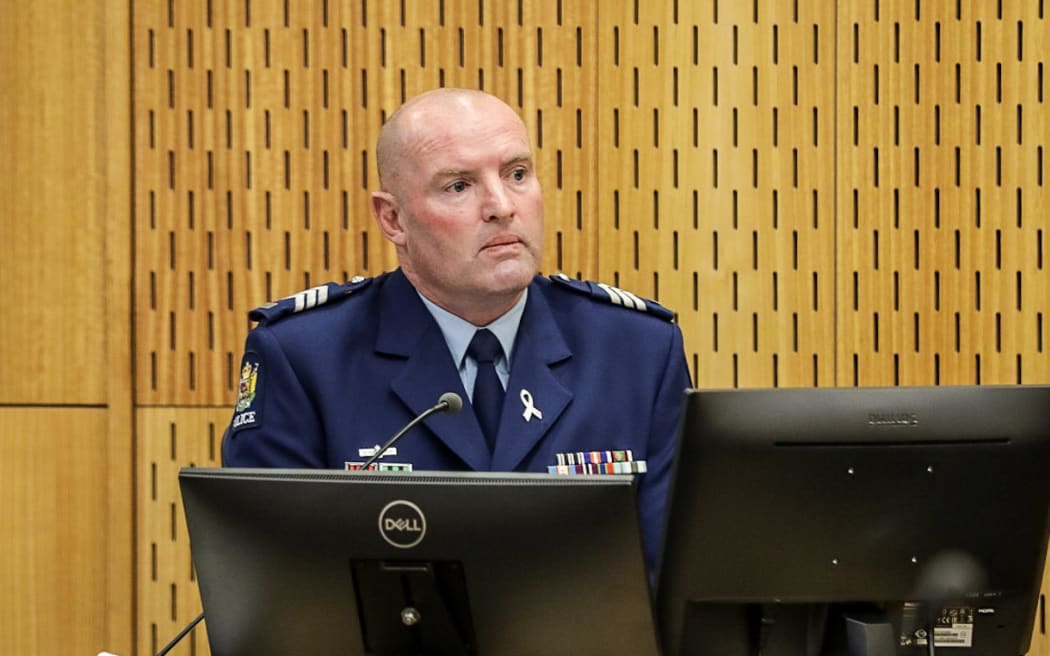
Sergeant Aaron Reid. Photo: RNZ / Nathan McKinnon
One of the first police officers who arrived at Christchurch's Al Noor Mosque after reports of shots being fired says he had just one day of active shooter training before the terror attack on 15 March 2019.
The inquest into the 51 people murdered at Al Noor Mosque and Linwood Islamic Centre today heard from several police officers who detailed the chaos and horror they were confronted with that day.
One Armed Offenders Squad (AOS) member broke down as he spoke of helping to give first aid to a baby with gunshot wounds at Linwood mosque.
Sergeant Aaron Reid was acting sergeant on the day of the attack, arriving at Deans Avenue at 1.46pm.
Reid told the court he quickly formulated a plan with his team, where they armed themselves and began moving towards Al Noor Mosque on foot.
They cleared vehicles and evacuated people from the street as they went, seeing the AOS pull up and quickly head into the mosque.
Reid said bodies were lying on the street and a steady stream of distressed people, many bleeding, were coming out of the mosque.
He saw a victim with bullet holes in his back and another whom he performed CPR on for several minutes, before stopping as he got no response.
More bodies were located by Reid as he continued moving.
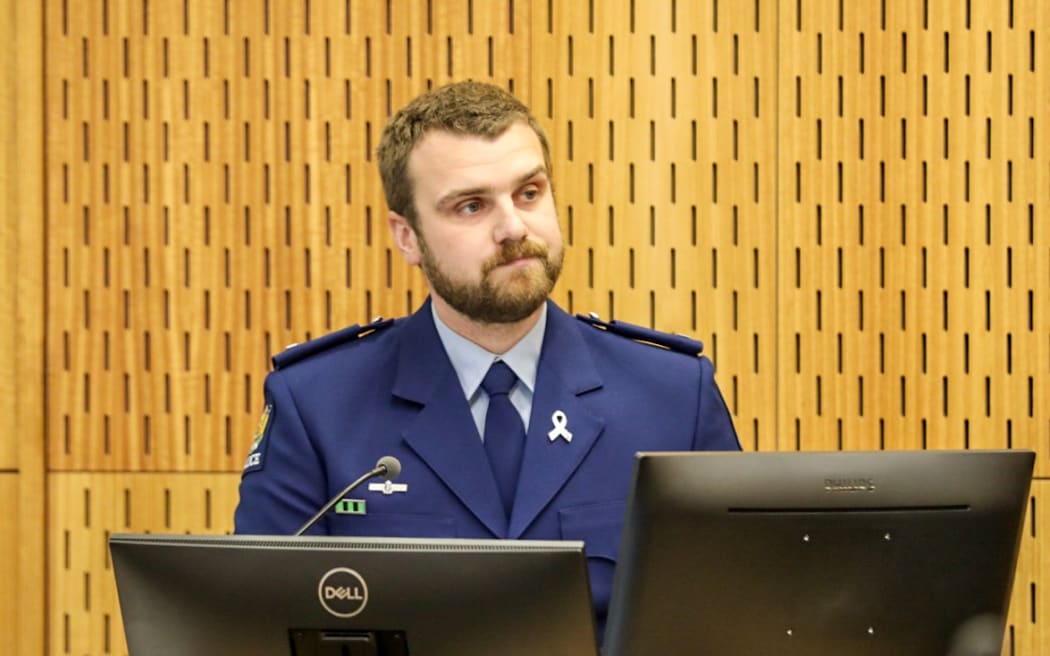
Constable Joseph Wilson also gave evidence on Tuesday. Photo: RNZ / Nathan McKinnon
Police began loading injured people into private vehicles for them to be taken to hospital by members of the public.
Reid said he also stopped a bus driver and loaded about 50 people into it, telling the driver to also take them to the hospital.
A group of about 30 people refused to leave the scene and became argumentative, Reid said.
He acknowledged they would have been highly distressed and he had to upset some people that day in order to maintain their safety.
"It's one of the hardest things I've ever had to do in my life, but I had to make people safe, and that's what I did."
Reid confirmed he could only recall one day of active shooter training prior to the attack - and it had happened years before it.
Reid also told the court he did not believe the New Zealand police had ever planned for such an event.
"At that point, I don't think we were ready for this."
Reid said further training had been provided since the attack, and more was planned.
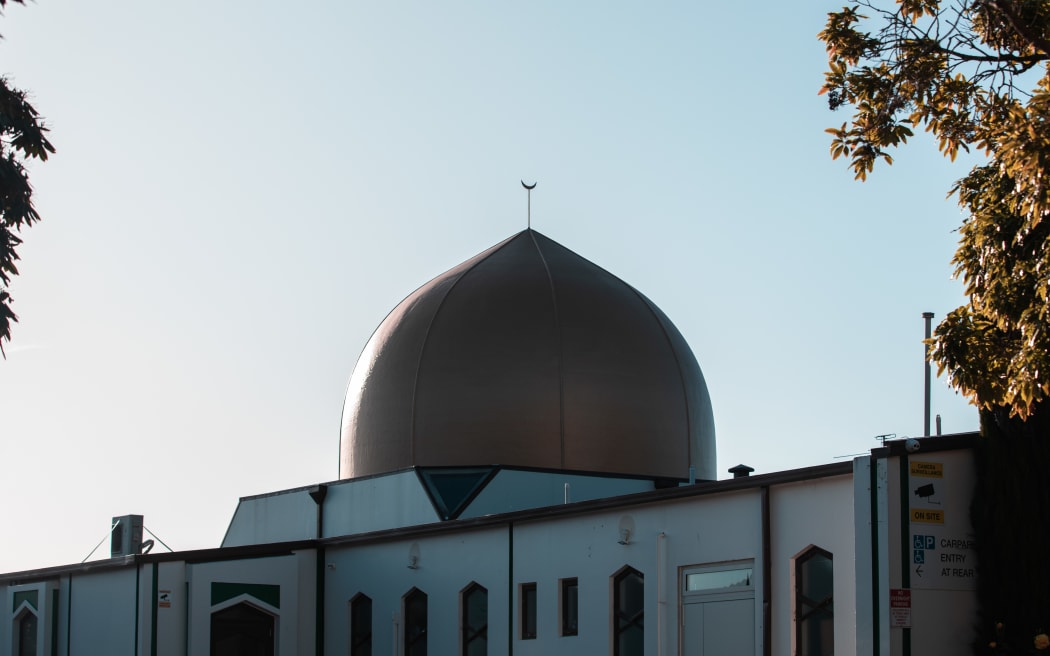
Christchurch's Al Noor Mosque. Photo: RNZ / Samuel Rillstone
'Panicked' radio transmission wasted time during response, AOS member says
Precious time was wasted when a panicked transmission over police radio wrongly suggested Christchurch's Al Noor Mosque was the target of a second attack almost half-an-hour after the mass shooting, the inquest heard earlier on Tuesday.
The mistake meant an AOS member thought he had "stuffed up" and left an offender free to shoot more people at the mosque on Deans Avenue on 15 March, 2019.
On Monday, the inquest heard a senior policeman did not realise the terrorist's Facebook stream of the attack was delayed when he transmitted a description of the gunman over the radio.
Detective Superintendent Darryl Sweeney described seeing the terrorist get out of his car, walk into the mosque and fire his gun.
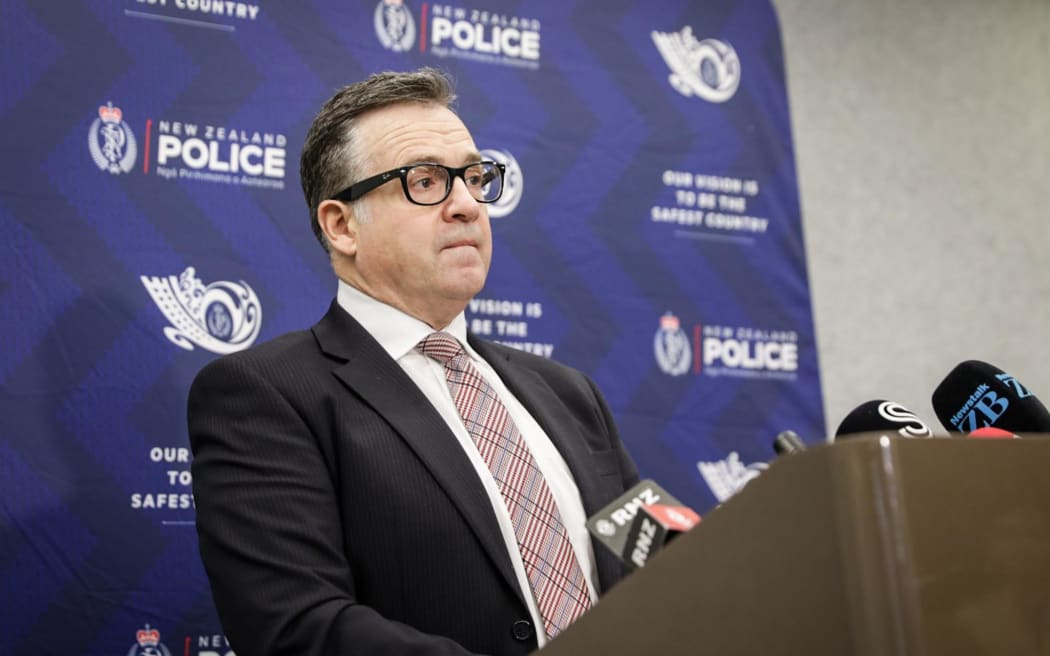
Detective Superintendent Darryl Sweeney. Photo: RNZ / Nate McKinnon
The AOS member, who has name suppression, said the "panicked" radio transmission came after he and his team had cleared Al Noor Mosque and were heading to Linwood Islamic Centre, where more shots had been fired.
"I thought I had stuffed up and left an offender there and he was killing people."
When he returned to the mosque, he realised that it was a mistake and his time had been wasted.
The AOS member also told the court none of his training could have prepared him for the scene he came across inside the mosque's main prayer room.
Bodies lying on the ground outside the mosque made him realise they would be dealing with a mass casualty event, but nothing prepared him for the number of bodies piled up in the room, and the smell, he said.
He was "overwhelmed" by the scene and called multiple times for ambulance staff to come and help injured victims inside the mosque.
An initial clearance of the building had been completed, and the AOS member said he was confident ambulance staff could enter by 1.59pm.
A few minutes later, he called for ambulance staff to "come forward" but still, none came.
He told the court he understood the risk involved, as areas surrounding the mosque had not been thoroughly checked, so ambulance staff may have been hesitant to come into the mosque.
He said he completed a quick triage of victims, asking anyone who could walk to get out of the mosque.
Assessing two injured worshippers, he quickly realised the medical kit his team had with them was not going to be enough - and people needed to get to hospital straight away.
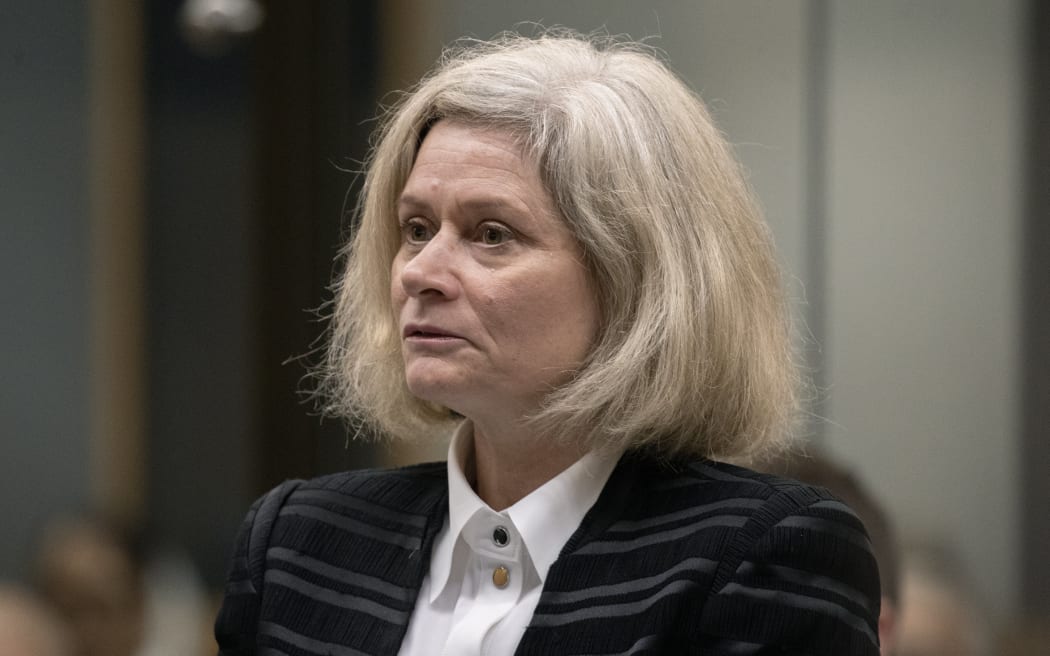
Lawyer Nikki Pender. Photo: Pool / Iain McGregor / The Press
The AOS member was asked by Nikki Pender, lawyer for victims and their families, if there was anything that could have been done to make the police response quicker.
He told her the radio in the room he was in at the time had been turned down for a meeting earlier in the day, and never turned back up.
Had the volume been up, they may have heard the 111 calls three minutes prior to the page he received. This meant he and another team member could have got to the mosque three minutes earlier than they did - but the outcome of that was unknown.
"We could have stopped the offender, or we could be dead."
The inquest will examine the following 10 issues over six weeks:
- the events of 15 March 2019 from the commencement of the attack until the terrorist's formal interview by police
- the response times and entry processes of police and ambulance officers at each mosque
- the triage and medical response at each mosque
- the steps that were taken to apprehend the offender
- the role of, and processes undertaken by, Christchurch Hospital in responding to the attack
- coordination between emergency services and first responders
- whether the terrorist had any direct assistance from any other person on 15 March 2019
- if raised by immediate family, and to the extent it can be ascertained, the final movements and time of death for each of the deceased
- the cause of death for each of the victims and whether any deaths could have been avoided
- whether Al Noor Mosque emergency exit door in the southeast corner of the main prayer room failed to function during the attack and, if so, why?
The inquest continues.

